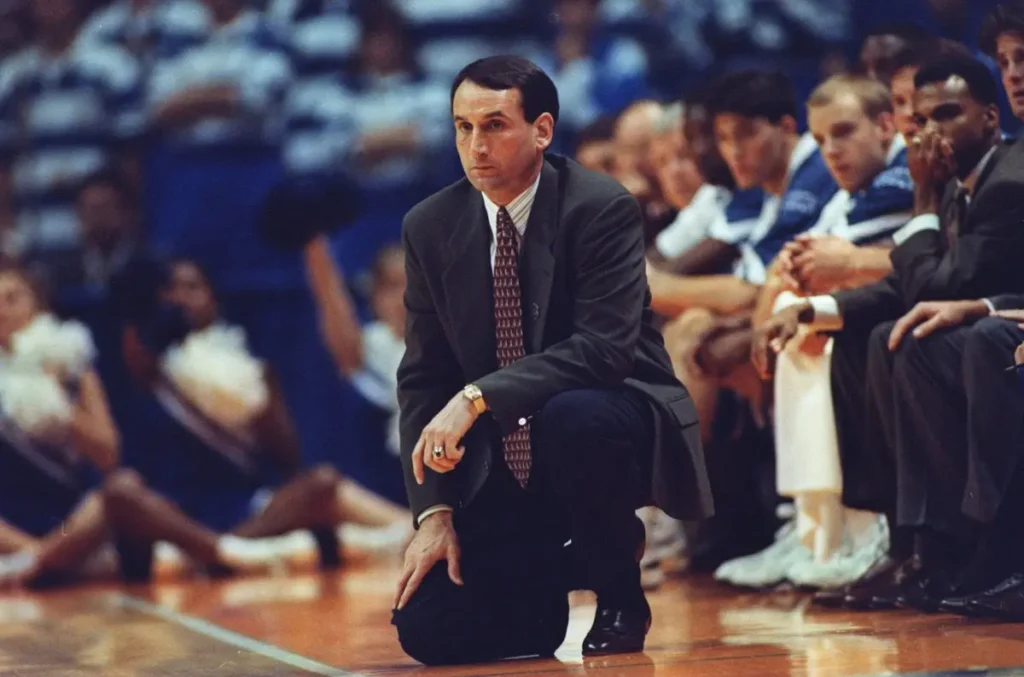Building Champions: Encouraging Resilience in Youth Athletes
How to Help Young Players Bounce Back from Setbacks and Keep Moving Forward
Introduction
In youth sports, resilience is a game-changer.
It’s the trait that helps young athletes bounce back from defeats, injuries, and tough practices.
But resilience is more than just recovery; it’s about growing stronger and more determined.
Think about it: every athlete faces challenges. Some days are filled with victories and high-fives, but others are marked by losses and missed opportunities.
The difference between a good athlete and a great one often comes down to how they handle those tough days.
Resilient athletes don’t just survive setbacks; they thrive because of them.
They see every challenge as a stepping stone to improvement and every failure as a lesson learned.
But how do you instill this powerful trait in young athletes? It’s not something that happens overnight. It requires a dedicated effort from coaches and parents.
Together, they can create an environment encouraging resilience, teaching young athletes to push through adversity and emerge stronger.
In this post, we’ll delve into the concept of resilience in youth sports. We’ll start by defining what resilience really means in this context.
Then, we’ll explore why it’s so crucial for young athletes to develop this trait.
Finally, we’ll offer practical tips for coaches and parents on how to cultivate resilience in their players.
Resilience isn’t just about bouncing back; it’s about moving forward with more wisdom and strength.
It’s about equipping young athletes with the mental tools they need to face life’s inevitable challenges, both on and off the field.
So, let’s dive in and discover how we can help our young athletes build the resilience they need to become champions in sports and in life.

“Resilient athletes are not just better players; they’re better people. They learn to cope with challenges and grow from them.”
— Julie Foudy, Former Professional Soccer Player
Defining Resilience
What is Resilience?
Resilience is the ability to recover quickly from difficulties. It’s the capacity to bounce back from setbacks and keep moving forward with determination.
In youth athletics, resilience means facing challenges head-on, learning from mistakes, and continuously striving to improve.
It’s not just about enduring hardships; it’s about embracing them and using them as fuel for growth.
Imagine a young soccer player who misses a crucial penalty kick.
Instead of letting the miss define them, they analyze what went wrong, practice diligently, and return stronger for the next game.
That’s resilience in action. It’s the grit and perseverance that drive players to push through the tough times and come out better on the other side.
Why is Resilience Critical?
Resilience is a cornerstone of success in sports. Here’s why:
1. Adaptability:
Young athletes who are resilient adapt better to changes in their sport and life. Sports are unpredictable; weather conditions change, referees make unexpected calls, and opponents can be unpredictable. Resilient athletes learn to adjust quickly and maintain their performance level despite these variables.
2. Positive Attitude:
Maintaining a positive attitude even after losses is a hallmark of resilient athletes. They understand that setbacks are part of the game and don’t let them overshadow their love for the sport. This positivity keeps them motivated and eager to improve.
3. Learning from Failures:
Failures are inevitable in sports, but resilient athletes use them as stepping stones to success. They view each failure as an opportunity to learn and grow. Instead of dwelling on mistakes, they focus on what they can do better next time.
4. Mental Toughness:
In essence, resilience equips young athletes with the mental toughness needed to face the ups and downs of competitive sports. It’s this mental fortitude that helps them stay focused under pressure, recover from errors, and persist in the face of adversity.
Real-Life Example:
Consider Michael Jordan, one of the greatest basketball players of all time. He famously said:
“I’ve missed more than 9,000 shots in my career. I’ve lost almost 300 games. Twenty-six times, I’ve been trusted to take the game-winning shot and missed. I’ve failed over and over and over again in my life. And that is why I succeed.”
This quote encapsulates the essence of resilience. Jordan’s ability to learn from each failure and keep pushing forward is what made him a legend.
In youth sports, developing resilience helps young athletes not just on the field, but in all aspects of life.
It teaches them that setbacks are temporary and that persistence and hard work can overcome almost any obstacle.
As coaches and parents, fostering this resilience is one of the greatest gifts we can give our young athletes.
It prepares them for the challenges of sports and life, helping them become not just better athletes, but stronger individuals.
“The true test of an athlete’s character is how they handle setbacks. Building resilience is key to long-term success.”
— John Wooden, Legendary Basketball Coach

Importance of Resilience
Benefits of Resilience for Young Athletes
Building resilience has numerous benefits, both on and off the field. Let’s delve deeper into how resilience positively impacts young athletes:
Improved Performance
Focus and Motivation:
Resilient athletes are more focused and motivated. They understand that every practice, every drill, and every game is a step towards their goal.
This unwavering focus helps them maintain a high level of performance, even when faced with distractions or setbacks.
Pushing Through Challenges:
Athletes encounter fatigue, tough opponents, and challenging conditions. Resilience empowers them to push through these difficulties.
When a player feels exhausted or disheartened, resilience gives them the mental strength to keep going.
This ability to persevere often translates to better performance, as they are less likely to give up when the going gets tough.
Example:
Consider a marathon runner who hits “the wall” at mile 20. Their muscles ache, and their energy wanes.
A resilient runner digs deep, finds that extra bit of determination, and pushes through to the finish line.
This same principle applies to young athletes in any sport, driving them to perform their best, regardless of the circumstances.
Better Handling of Setbacks
Learning Opportunities:
Setbacks are inevitable in sports. Resilient athletes see them as opportunities to learn.
When they miss a shot, lose a game, or face an injury, they analyze what went wrong and what can be improved.
This proactive approach turns failures into valuable lessons.
Reduced Discouragement:
Resilient athletes are less likely to get discouraged by setbacks. Instead of dwelling on a mistake, they focus on what they can do better next time.
This mindset keeps them motivated and optimistic, even in the face of adversity.
They understand that setbacks are a natural part of the growth process.
Example:
A basketball player who misses a critical free throw in a big game can either dwell on the miss or use it as motivation to practice more.
A resilient player chooses the latter, turning a setback into a driving force for improvement.
Long-Term Personal Development
Character Building:
Resilience builds character. It teaches young athletes to persevere, remain patient, and stay positive.
These traits are not only crucial for sports but are also essential life skills.
Athletes who develop resilience are better equipped to handle challenges in school, relationships, and future careers.
Embracing Challenges:
Resilience helps young athletes develop a mindset that embraces challenges and persists through difficulties.
They learn that obstacles are not roadblocks but opportunities to grow and improve.
This perspective is invaluable, fostering a growth mindset that will benefit them throughout their lives.
Example:
Think about a young swimmer who struggles with a particular stroke. Through resilience, they commit to extra practice, seek feedback from coaches, and gradually improve.
This journey not only makes them a better swimmer but also instills a sense of confidence and determination that will serve them well in all areas of life.
Real-Life Stories:
- Bethany Hamilton:
Bethany Hamilton, a professional surfer, lost her arm in a shark attack at the age of 13. Instead of giving up, she displayed incredible resilience by returning to competitive surfing just a year later. Her story is a testament to how resilience can help athletes overcome even the most daunting challenges and achieve greatness. - Michael Phelps:
Michael Phelps, the most decorated Olympian of all time, faced numerous setbacks throughout his career, including injuries and personal struggles. His resilience allowed him to come back stronger each time, culminating in an unparalleled record of 23 Olympic gold medals.
In summary, resilience is a powerful trait that enhances performance, enables better handling of setbacks, and contributes to long-term personal development.
By fostering resilience, we help young athletes become not only better players but also stronger, more capable individuals ready to face life’s many challenges.

“In sports and life, resilience is the difference between giving up and pushing through. It’s the foundation of success.”
— Coach Mike Krzyzewski, Basketball Coach
Building Resilience
Practical Tips for Coaches and Parents
Cultivating resilience in young athletes requires consistent effort and thoughtful strategies. Here are some practical tips to help:
Positive Reinforcement
Celebrate Small Victories and Progress:
Recognizing small achievements is crucial. It builds confidence and reinforces the idea that progress is more important than perfection.
Celebrate when an athlete improves their personal best, masters a new skill, or shows great sportsmanship.
Focus on Effort and Improvement, Not Just Outcomes:
Shift the focus from winning to the effort put in. Praise the hard work, dedication, and perseverance athletes display.
This encourages them to value the process of improvement over the final result.
Encouraging Phrases:
Use positive reinforcement with phrases like, “You’re improving every day,” or “That was a great effort!”
These words motivate athletes to keep pushing forward, knowing their hard work is recognized and appreciated.
Set Realistic Goals
Achievable and Measurable Goals:
Help athletes set goals that are attainable and specific.
Instead of setting a vague goal like “get better at soccer,” try “improve dribbling skills by practicing 15 minutes every day.”
Break Larger Goals into Smaller Steps:
Divide big goals into smaller, more manageable tasks.
This makes the overall objective less daunting and gives athletes frequent opportunities to succeed and feel accomplished.
Celebrate and Learn:
Celebrate when goals are met to reinforce positive behavior.
When goals are not achieved, discuss what can be learned from the experience. This helps athletes view setbacks as opportunities for growth.
Encourage Self-Reflection
Post-Game and Practice Reflections:
After games and practices, ask athletes to reflect on their performance. Questions like, “What did you do well today?” and “What can you improve next time?” encourage thoughtful analysis.
View Mistakes as Learning Opportunities:
Teach athletes to see mistakes as part of the learning process. Encourage them to identify what went wrong and how they can improve.
This fosters a growth mindset where they understand that skills and abilities can be developed through effort.
Promote a Growth Mindset:
Encourage statements like, “What can I learn from this?”
This helps athletes focus on growth and improvement rather than dwelling on failures.
Foster a Supportive Team Environment
Team Culture of Support and Encouragement:
Create an environment where team members support each other.
Encourage athletes to cheer for each other’s successes and offer support during tough times.
This builds a sense of camaraderie and mutual respect.
Uplift Each Other:
Teach athletes to be there for their teammates. When someone is struggling, teammates should step in with words of encouragement and support.
This collective resilience strengthens the entire team.
Sense of Belonging and Teamwork:
Promote activities that build team spirit and a sense of belonging.
Whether it’s team-building exercises or just spending time together outside of practice, fostering strong team bonds is essential.
Teach Coping Skills
Relaxation Techniques:
Introduce relaxation techniques like deep breathing, visualization, or mindfulness.
These can help athletes manage stress and stay focused during high-pressure situations.
Handling Stress and Anxiety:
Discuss ways to handle stress and anxiety related to sports.
Provide strategies such as positive self-talk, setting aside time for relaxation, and maintaining a healthy balance between sports and other activities.
Model Resilience:
Share personal experiences of overcoming challenges. Show athletes how resilience has helped you in your own life.
This not only provides a relatable example but also demonstrates that everyone faces setbacks and that resilience is key to overcoming them.
Continuous Encouragement and Support
Building resilience is a continuous process.
It involves encouraging young athletes to push their limits, reflect on their experiences, and stay positive. Consistency is key.
Regularly reinforcing these principles helps athletes internalize them, making resilience a natural part of their approach to sports and life.
Example:
Consider a young gymnast who is struggling to land a new routine.
By celebrating her progress in mastering each part of the routine, setting small goals for each practice session, encouraging her to reflect on what she learned after each attempt, fostering a supportive environment where her teammates cheer her on, and teaching her deep breathing techniques to calm her nerves before performing, coaches and parents can help her build resilience.
Over time, she’ll not only land the routine but also develop the mental toughness to tackle even bigger challenges.
Implementing these practical tips allows for coaches and parents to play a pivotal role in helping young athletes build resilience.
This resilience will serve them well, not only in their athletic endeavors but in all aspects of their lives, helping them become well-rounded, confident, and determined individuals.
Conclusion
Resilience is a vital trait for young athletes.
It’s the driving force that helps them overcome setbacks, improve performance, and develop valuable life skills.
In the ever-changing world of sports, resilience equips young athletes with the mental and emotional strength to face challenges head-on and emerge stronger.
By focusing on positive reinforcement, we instill confidence and motivation in young athletes.
Celebrating their small victories and progress encourages them to keep pushing forward.
When we set realistic goals, we help them achieve measurable success, teaching them the importance of perseverance and incremental improvement.
Encouraging self-reflection allows athletes to learn from their experiences, turning mistakes into opportunities for growth.
This not only enhances their skills but also fosters a growth mindset that will benefit them in all areas of life.
Creating a supportive team environment ensures that young athletes feel valued and connected.
A team that uplifts and encourages one another is a team that thrives together.
By teaching coping skills, we prepare young athletes to handle stress and anxiety effectively.
These skills are crucial not just for sports but for life’s many challenges.
Modeling resilience ourselves sets a powerful example for young athletes to follow, showing them that setbacks are not the end but the beginning of a new path to success.
So, let’s apply these strategies and watch our young athletes grow into resilient champions.
Resilience will serve them well beyond the playing field, preparing them for the many challenges and opportunities life will throw their way.
It’s about more than just sports; it’s about building strong, capable individuals who can navigate life’s ups and downs with confidence and grace.
Remember, the journey to greatness starts with a resilient heart. Let’s build that in our young athletes today.
By fostering resilience, we are not just shaping better athletes; we are shaping better people.
People who can face adversity with courage, who can learn and grow from their experiences, and who can inspire others with their determination and strength.
As we coach, mentor, and support these young athletes, let’s keep in mind the profound impact resilience can have.
It’s not just about winning games; it’s about winning at life.
And that journey starts with us, the coaches and parents, guiding and nurturing the resilient hearts of the future.
Stay committed, stay positive, and keep fostering resilience.
Together, we can help our young athletes become not only champions in their sports but champions in life
FAQ
Q1: Why is resilience important for young athletes? A1: Resilience helps young athletes overcome setbacks, improve performance, and develop valuable life skills. It equips them with the mental and emotional strength to face challenges head-on and emerge stronger.
Q2: How can I help my child build resilience in sports? A2: You can help by celebrating small victories, setting realistic goals, encouraging self-reflection, fostering a supportive team environment, and teaching coping skills. Positive reinforcement and consistent encouragement are key.
Q3: What are some practical ways to encourage self-reflection in young athletes? A3: After games and practices, ask your child what they did well and what they can improve. Teach them to view mistakes as learning opportunities and promote a growth mindset by encouraging reflective statements.
Q4: How can coaches foster a supportive team environment? A4: Coaches can create a culture of support by encouraging teammates to uplift each other, promoting a sense of belonging and teamwork, and modeling positive behavior. Team-building activities can also strengthen bonds among athletes.
Q5: What coping skills should young athletes learn to manage stress? A5: Introduce relaxation techniques like deep breathing, visualization, and mindfulness. Discuss ways to handle stress and anxiety, such as positive self-talk and maintaining a healthy balance between sports and other activities.
Call to Action
Join Coach Johnny in cultivating the next generation of youth sports athletes.
Coaches and parents, your role in fostering resilience in young athletes is more crucial than ever.
Embrace the opportunity to be their biggest supporter, their trusted mentor, and their steadfast advocate.
Dive into their world of sports with enthusiasm and dedication.
Start today by:
Positive Reinforcement: Celebrate small victories and focus on effort, not just outcomes.
Setting Realistic Goals: Help athletes set achievable goals and celebrate each milestone.
Encouraging Self-Reflection: Promote a growth mindset by encouraging athletes to learn from their experiences.
Fostering a Supportive Environment: Create a team culture that values support and encouragement.
Teaching Coping Skills: Introduce techniques to handle stress and model resilience through personal stories.
Your involvement doesn’t end at the field’s edge. It continues at home, in conversations, and through every encouraging word you offer.
By actively participating in their athletic and personal development, you help shape not just athletes, but resilient, confident, and well-rounded individuals.
Take the first step now.
Engage with your young athletes about their goals, share their joys and challenges, and show them the unwavering support they need to succeed.
Let’s build a future where our young athletes thrive both on and off the field.
Your journey as a supportive coach or parent starts here. Make every moment count.
Join the JK Tribe
Coach Johnny is a youth sports coach with over 30 years of experience. He continues to coach various sports in various age groups (pre-high school) for all genders. He is also the founder of Johnny’s Kidz and the JK Tribe. If you would like to support his journey and become a Tribe member, reach out and Buy Coach A Cup of Coffee.
Remember, The Game Belongs to Them!
DISCLOSURE: We often review or link to products and services we regularly use and think you might find helpful. We use referral links wherever possible, which means if you click one of the links in this video or description and make a purchase, we may receive a small commission or other compensation.
We’re big fans of Amazon, and many of our links to products/gear are to those products on Amazon. We participate in the Amazon Services LLC Associates Program, an affiliate advertising program designed to allow us to earn fees by linking to Amazon.com and related sites.

